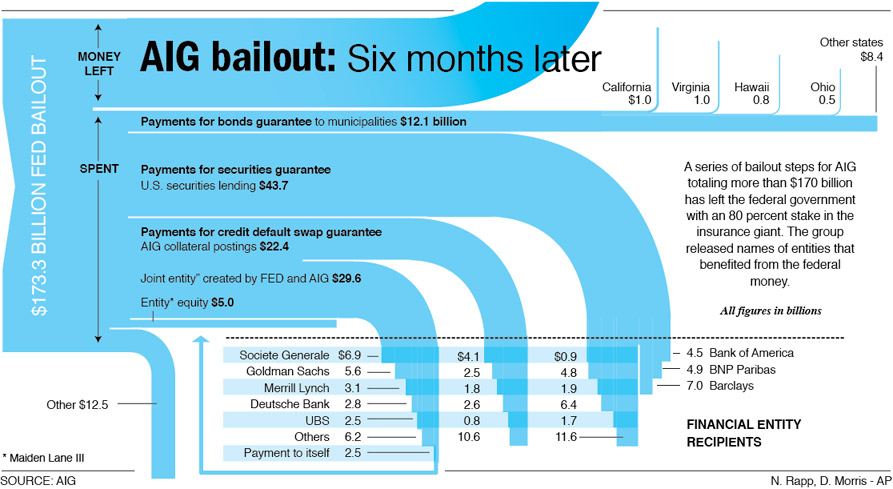El problema de AIG no son los bonus que pagó (esa es la cortina de humo), sino porque la rescataron.
El capitalismo es un sistema económico de premios y castigos. No funciona de otra manera, y USA quiere cambiar las reglas, y así le irá.
Veamos primero un párrafo sobre quien estuvo involucrado en el rescate, y luego como se distribuyo para que cada uno saque sus conclusiones:
Extracto del Daily Reckoning por Bill Bonner:
"This week, under pressure from its new proprietor - the U.S. government - AIG released a list showing who had gotten more than $100 billion of its bailout money. At the top of the list of recipients was a familiar name - Goldman Sachs. In a truly astonishing co-incidence, Goldman is the firm that had been run by the very person who headed up the AIG rescue - former Treasury Secretary Hank Paulson. And what serendipity! Lloyd Bankfein - Goldman's top man now - was actually in the room with the feds when the AIG rescue plan was put together".
From the The Big Picture:

(clickear sobre el cuadro para verlo con claridad)
SEGUIR LEYENDO...



